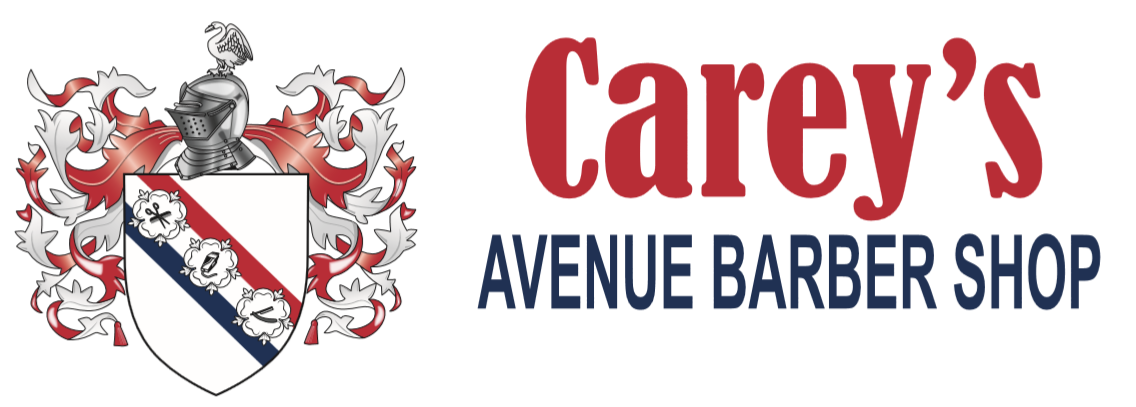The Man Who Unplugged and Picked Up the Scissors
/This short story was written by my twin brother, Dr. David R. Carey—a man of science, success, and soul. Dave holds a Ph.D. in engineering and has spent much of his life in the rigorous world of research, development, and high-level business. He’s walked the long road of achievement in the technical realm, always with precision, always with purpose.
So when he puts pen to paper to tell my story—when he steps away from equations and strategy to capture a turning point in my life—it humbles me more than I can say.
“The Man Who Unplugged and Picked Up the Scissors” is more than a tribute. It’s a mirror, held up by someone who knows me better than anyone else could. David watched me leave a life behind—the screens, the servers, the syntax—and build something new with my hands, with my heart, and with steel tools instead of silicon ones.
Ironically, as I stepped into the world of barbering, Dave himself began to reimagine his own path. Soon, he’ll leave behind the grind of corporate life to embrace something equally challenging and meaningful: teaching at Wilkes University. It seems we are both chasing a different kind of legacy now—one shaped not by profit margins or deadlines, but by presence, patience, and people.
His words in this story are a gift. They capture a journey from logic to craft, from control to care. And maybe—just maybe—they mark the beginning of his own.
…
The Man Who Unplugged and Picked Up the Scissors
By Dr. David R. Carey
You know the type. Quiet. Methodical. A guy who kept a desk like a surgical tray—everything just so. For thirty years, he lived in a world of green text on black screens, of COBOL and Oracle, of system updates at 3 a.m. because “users” were like deer—easily startled, prone to breaking things they didn’t understand. He was the guy behind the guy, behind the server, behind the firewall.
And then one day… click.
The mouse stopped clicking.
He looked around his cubicle, that warm beige tomb of forgotten ambition, and he said: “I’m done.”
That was the end of the old program. The old life. The end of submitting bug reports into a void and pretending that root cause analysis was the same thing as meaning. A man gets tired of blinking cursors and stale coffee. Sometimes, a man wants to stand up, breathe deep, and build something with his hands.
Not with a keyboard. With wood. With paint. With scissors sharp enough to whisper truth.
He had no roadmap. Only a name—Carey’s Avenue Barber Shop—and a building that still echoed like a meat locker. No chairs. No sink. No floor, even. Just an old storefront, a few buckets of ambition, and the haunting whisper of “Are you out of your mind?” from the people who meant well but always ordered the same thing at Applebee’s.
And yet—there he was.
Brick by brick. Beam by beam. A man who once debugged legacy code was now installing a ceiling with the patience of a monk and the profanity of a sailor. He painted. He wired. He laid flooring until the vinyl curled like a cat in the sun.
Ten years ago, it was a hollow room with dreams echoing off drywall.
Now? Now it’s a barbershop that smells like Bay Rum and hope. The chair—a real one, cast iron and cherry red—sits like a throne, and the old register clinks like it remembers the Depression. Kids get their first trims while Mr. Peanut watches from the shelf, monocled and serene. Veterans talk politics. Teenagers ask for fades they saw on TikTok. And your brother? He listens. He laughs. He cares.
There’s a fire in the corner now. Not a real one, but a cozy illusion—a digital hearth to warm the soul while you're waiting your turn. There's a computer, too, but it doesn't get the final say anymore. The screen doesn’t glow with meaning. The room does.
You see, this isn’t just a haircut joint. It’s a time machine. A shrine. A quiet rebellion against everything sterile and forgettable. It's the kind of place Frost might’ve walked into, taken off his coat, and said, “This is the road I didn’t know I needed.” And Kerouac—well, he would’ve called it a “dig-worthy scene,” man. A rest stop for weary travelers who forgot their hair grew while their souls were sleeping.
It’s not flashy. But it’s real.
A man rebooted his life—not with code, but with clippers. Not with metrics, but with mirrors and laughter and the subtle grace of a steady hand behind your ear.
So if you’re ever on Carey’s Avenue, look for the pole spinning like an old vinyl record. Walk in. Take a seat. And listen.
You’ll hear more than scissors.
You’ll hear a man who leapt—and landed.





